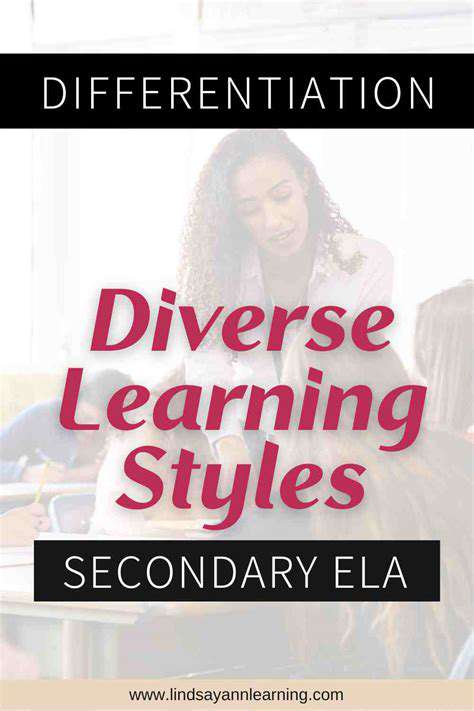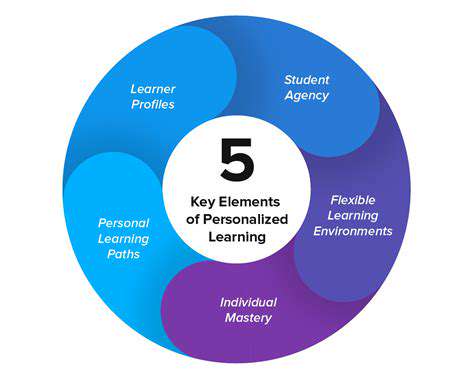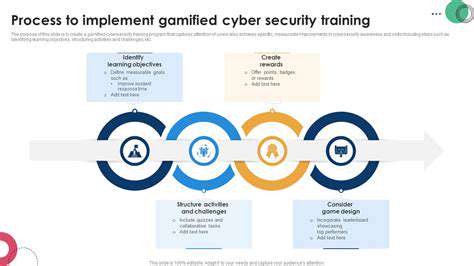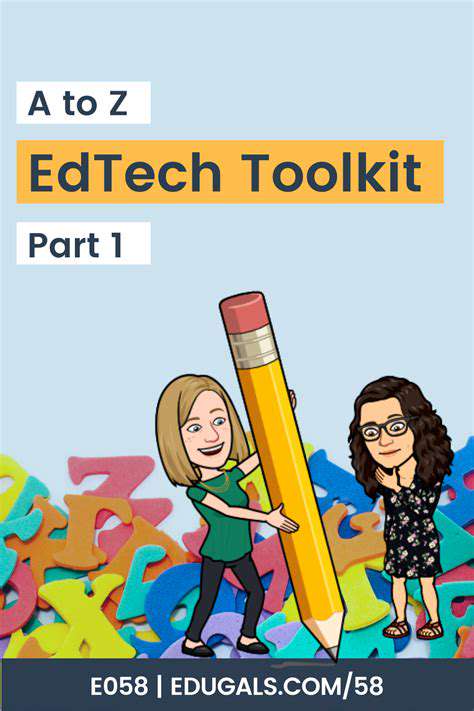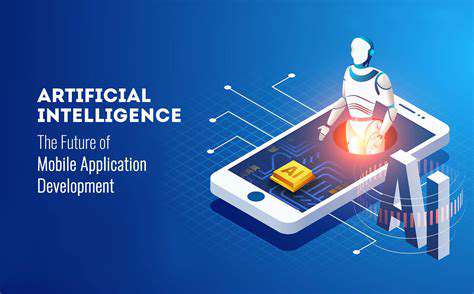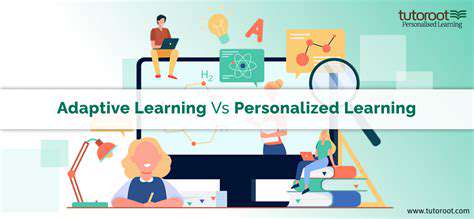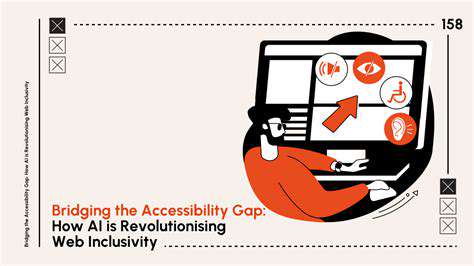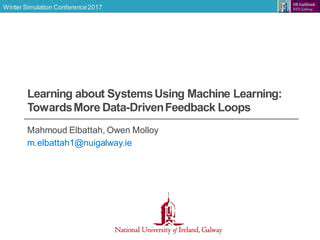AI for Personalized Learning Paths: Customizing Every Student's Journey
Understanding the Data Landscape
Analyzing student data is no longer a supplementary activity but a crucial component of effective personalized learning. This involves understanding the vast array of information available, from academic performance metrics and standardized test scores to attendance records, engagement levels in online platforms, and even social-emotional indicators. Careful consideration must be given to the ethical implications of data collection and usage, ensuring student privacy and data security are paramount.
Different sources of data, such as classroom observations, teacher feedback, and self-reported student surveys, can provide a multifaceted view of each student's learning journey. Integrating these diverse data points into a cohesive analytical framework is vital to gain a comprehensive understanding of individual student needs and learning styles.
Identifying Learning Patterns
By meticulously tracking student performance over time, educators can identify trends and patterns in learning. This includes recognizing areas where students excel, as well as pinpointing specific knowledge gaps or challenges. The identification of these patterns informs the development of targeted interventions and personalized learning paths.
Analyzing data for learning patterns goes beyond simply identifying strengths and weaknesses. It helps uncover the underlying reasons for those patterns, providing insights into learning strategies that are effective for each student. For instance, if a student consistently struggles with math word problems, data analysis could reveal an underlying issue with reading comprehension, prompting interventions to address that specific challenge.
Personalizing Learning Pathways
Data analysis empowers educators to create individualized learning pathways that cater to the specific needs, strengths, and learning styles of each student. This personalized approach ensures that students are not simply working through a one-size-fits-all curriculum but are actively engaged in content and activities tailored to their unique learning journey.
Using data to personalize learning extends beyond simply adjusting content difficulty. It includes tailoring the pacing, the method of delivery (e.g., visual aids, hands-on activities), and even the social environment of the learning experience to optimize engagement and comprehension. This personalized approach ultimately fosters a more effective and enjoyable learning experience for every student.
Developing Targeted Interventions
Identifying specific learning gaps and challenges through data analysis facilitates the development of targeted interventions. These interventions can range from providing extra support in specific areas to suggesting alternative learning strategies or resources, ensuring that each student receives the personalized assistance they need to succeed.
The development of targeted interventions should be an iterative process, continually monitored and adjusted based on the student's response to the intervention. Data analysis plays a crucial role in assessing the effectiveness of interventions and informing subsequent adjustments to the learning path. This iterative process of assessment and adjustment is key to ensuring the interventions are truly effective in addressing the individual needs of each student.
Utilizing AI for Enhanced Analysis
Artificial intelligence (AI) tools can significantly enhance the analysis of student data, enabling educators to identify patterns and insights that might be missed through manual review. AI algorithms can process vast amounts of data quickly and efficiently, identifying complex relationships and patterns that would otherwise be difficult to discern.
AI can also be used to predict potential learning challenges or successes, allowing educators to proactively intervene and support students before they fall behind. By automating certain aspects of data analysis, AI frees up educators' time to focus on providing personalized support and fostering a supportive learning environment.
Measuring and Evaluating Learning Outcomes
Data analysis provides a powerful framework for measuring and evaluating the effectiveness of personalized learning strategies. By tracking student progress against pre-defined learning objectives, educators can assess the impact of individual interventions and tailor strategies accordingly. This iterative approach ensures that the learning environment remains responsive to individual student needs.
Data-driven evaluation of learning outcomes is essential for continuous improvement. By analyzing results, educators can identify areas where the personalized learning strategy needs adjustment, ensuring that it remains effective and relevant for each student's evolving needs and circumstances. This continuous cycle of assessment, analysis, and adjustment is critical for optimizing the learning experience.
Ethical Considerations and Data Privacy
The collection and use of student data for personalized learning necessitate a strong commitment to ethical considerations and data privacy. Ensuring compliance with relevant regulations and maintaining student confidentiality are paramount. Transparent communication with parents and students about data usage is crucial for building trust and fostering a positive learning environment.
Implementing robust data security measures is essential to protect student data from unauthorized access or breaches. Educators must be trained on proper data handling procedures and the importance of ethical considerations, establishing clear guidelines and protocols for data management and analysis. This ensures that the collection, storage, and usage of student data are conducted responsibly and ethically.
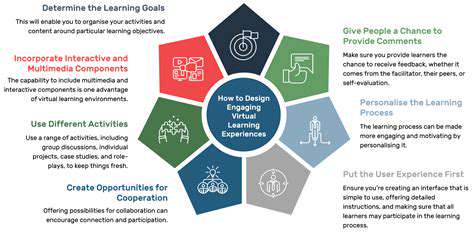
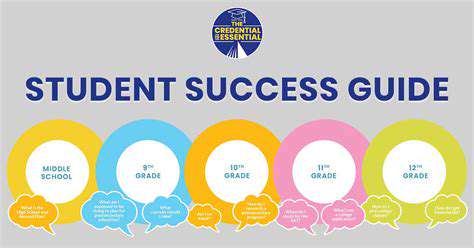
The Future of Learning: Beyond the Classroom
Personalized Learning Paths: Tailored for Success
AI-powered learning platforms are revolutionizing education by creating personalized learning paths. Instead of a one-size-fits-all approach, these platforms analyze individual student data, including learning styles, strengths, weaknesses, and pace, to craft customized curricula. This personalized approach ensures that students receive the specific support and resources they need to thrive, leading to greater engagement and improved academic outcomes.
This individualized approach extends beyond simply adjusting the pace of instruction. AI can identify knowledge gaps in real-time, proactively suggesting supplemental resources or targeted practice exercises. This dynamic adaptation ensures that students are consistently challenged and supported, fostering a deeper understanding of the material.
AI-Driven Feedback and Support Systems
Beyond customized learning paths, AI plays a crucial role in providing ongoing feedback and support. Intelligent tutoring systems can offer immediate feedback on assignments, pinpoint areas where students are struggling, and provide targeted explanations. This constant support helps students develop a deeper understanding of concepts and improve their problem-solving skills.
AI-powered platforms can also monitor student progress in real-time, identifying potential issues and offering personalized support strategies. This proactive approach allows teachers to intervene effectively and address any learning difficulties before they escalate, ensuring that every student receives the necessary support to succeed.
Adaptive Assessments and Continuous Evaluation
Traditional assessments often fall short in accurately capturing a student's true understanding. AI-powered adaptive assessments, however, provide a more nuanced and comprehensive evaluation of knowledge and skills. These assessments dynamically adjust based on student responses, tailoring the difficulty of questions to the individual student's level, ensuring a more accurate reflection of their understanding.
Continuous evaluation is a key component of personalized learning. AI-driven platforms can track student progress over time, providing insights into their learning patterns and identifying areas where targeted interventions are needed. This ongoing evaluation allows for timely adjustments to the learning plan, ensuring that students are always progressing effectively.
Accessibility and Inclusivity in Learning
AI has the potential to significantly enhance accessibility and inclusivity in education. By adapting to diverse learning styles, providing real-time support, and offering personalized feedback, AI-powered learning platforms can create a more equitable and supportive learning environment for all students. This includes students with disabilities, those from diverse cultural backgrounds, and those with varying learning preferences.
AI can also translate educational materials into multiple languages, making learning opportunities accessible to a wider range of students. Furthermore, AI-powered tools can provide personalized support for students who are struggling with specific learning challenges, ensuring that every student has the opportunity to reach their full potential.
AI-driven tools can also provide personalized support for students who are struggling with specific learning challenges, ensuring that every student has the opportunity to reach their full potential. This inclusivity fosters a more supportive and collaborative learning environment where every student feels valued and empowered to succeed.
Read more about AI for Personalized Learning Paths: Customizing Every Student's Journey
Hot Recommendations
- Attribution Modeling in Google Analytics: Credit Where It's Due
- Understanding Statistical Significance in A/B Testing
- Future Proofing Your Brand in the Digital Landscape
- Measuring CTV Ad Performance: Key Metrics
- Negative Keywords: Preventing Wasted Ad Spend
- Building Local Citations: Essential for Local SEO
- Responsive Design for Mobile Devices: A Practical Guide
- Mobile First Web Design: Ensuring a Seamless User Experience
- Understanding Your Competitors' Digital Marketing Strategies
- Google Display Network: Reaching a Broader Audience


